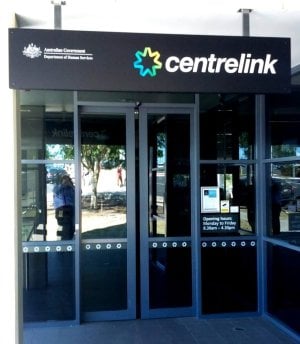Heads up! A huge change is in store for Centrelink recipients
- Replies 73
Attention Centrelink recipients — there’s a major change happening soon.
On March 6, the Cashless Debit Card (CDC) program will end and a new Enhanced Income Management system will come into effect.
‘Enhanced Income Management helps you budget your payments from us,’ Services Australia said.
‘It also helps you meet essential household needs and expenses, like food, rent, bills and education.’
‘You access your enhanced Income Management account with your SmartCard.’
More than 16,000 eligible participants nationwide will be sent letters containing further details before the program lapses.

‘For now, you keep using your CDC until you get a new SmartCard, which looks and works like a regular bank debit card,’ Services Australia added.
Participants who will opt to get the new SmartCard will need to go to their respective service centre or agent to avail of the change.
According to the Department of Social Services (DSS), the Enhanced Income Management program also widens the current exclusions on alcohol, gambling, and cash withdrawal.
Under the new program, tobacco and pornographic materials have also been disallowed from purchase.
It’s also important to note that people who live in the Northern Territory or Cape York and Doomadgee (QLD) and have a CDC will be switched to the new system.
‘If you are on Income Management and have a BasicsCard, nothing changes. You do not move to Enhanced Income Management,’ Services Australia added.
‘If you live in certain areas of Australia, you can volunteer for Enhanced Income Management and access it with a SmartCard.’
Here are relevant links per qualifying state:
The DSS has also stressed it will continue to deliver CDC-related support services in the qualifying areas.
‘Funding arrangements for over 40 existing services in CDC communities have been extended,’ the department said.

‘A range of added supports, including those requested by communities during consultation with the Government, are also being funded. These services will be co-designed with the local community to ensure the support meets local needs, empowering local voices and decision-making.’
‘Funding will be used to support alcohol and other drug treatment that complements existing services, addresses service delivery gaps, and is consistent with the needs and expectations of the communities.’

For those unfamiliar with the CDC, it’s an income management system which prevents as much as 80 per cent of welfare recipients’ money from being used on vices such as alcohol and gambling or being withdrawn in cash.
It did this by splitting welfare payments in two — one chunk goes to a recipient’s regular bank account, and another goes onto their cashless debit card.
The program was first introduced around 2016 in trials in select parts of the country in Ceduna region, SA; East Kimberley and Goldfields region, WA; Bundaberg, Hervey Bay, and Cape York regions in QLD; and the NT to find out if reducing the available cash on hand in communities would lead to lower rates of welfare-related alcohol, gambling, and drug use.
The concept, however, is said to have been introduced to Australia in 2007 in the NT to help Indigenous communities in the area.

Initial evaluations of the CDC program said it had a ‘considerable positive impact’ in trial communities — but a later federal government audit found that the program had a ‘lack of evidence’ to prove its effectiveness in meeting its goals.
In October of 2022, it was announced by the Labor government that the CDC will be scrapped, following through on an Albanese election promise.
In general, income management programs with similar setups — the government doles out welfare but with restrictions — have been criticised due to high administrative costs, the social stigma associated with being on a program like CDC, particularly for Indigenous Australians, and failure to address the systemic causes of problems like drug and alcohol abuse and poverty.
Now, speaking of changes, you might want to find out a couple in store for myGov after a review also found various points for improvement.
So, what are your thoughts on this most upcoming change?
Do you think that the expanded restrictions on tobacco and pornographic materials will make a difference in terms of improving the social outcomes of SmartCard recipients? Or do you think payments should be unrestricted?
Tell us your opinions below!
Source: YouTube/ABC News Australia
On March 6, the Cashless Debit Card (CDC) program will end and a new Enhanced Income Management system will come into effect.
‘Enhanced Income Management helps you budget your payments from us,’ Services Australia said.
‘It also helps you meet essential household needs and expenses, like food, rent, bills and education.’
‘You access your enhanced Income Management account with your SmartCard.’
More than 16,000 eligible participants nationwide will be sent letters containing further details before the program lapses.

The new changes announced by the government for CDC participants will take effect in March. Image Credit: flickr
‘For now, you keep using your CDC until you get a new SmartCard, which looks and works like a regular bank debit card,’ Services Australia added.
Participants who will opt to get the new SmartCard will need to go to their respective service centre or agent to avail of the change.
According to the Department of Social Services (DSS), the Enhanced Income Management program also widens the current exclusions on alcohol, gambling, and cash withdrawal.
Under the new program, tobacco and pornographic materials have also been disallowed from purchase.
It’s also important to note that people who live in the Northern Territory or Cape York and Doomadgee (QLD) and have a CDC will be switched to the new system.
‘If you are on Income Management and have a BasicsCard, nothing changes. You do not move to Enhanced Income Management,’ Services Australia added.
‘If you live in certain areas of Australia, you can volunteer for Enhanced Income Management and access it with a SmartCard.’
Here are relevant links per qualifying state:
The DSS has also stressed it will continue to deliver CDC-related support services in the qualifying areas.
‘Funding arrangements for over 40 existing services in CDC communities have been extended,’ the department said.
Tip
Got questions about the new SmartCards? Call Services Australia at 1800 252 604 or click here to find out more!
‘A range of added supports, including those requested by communities during consultation with the Government, are also being funded. These services will be co-designed with the local community to ensure the support meets local needs, empowering local voices and decision-making.’
‘Funding will be used to support alcohol and other drug treatment that complements existing services, addresses service delivery gaps, and is consistent with the needs and expectations of the communities.’

Income management programs such as CDC have previously been criticised for failing to address the problems it means to solve like poverty or excessive alcohol use. Image Credit: Flickr
For those unfamiliar with the CDC, it’s an income management system which prevents as much as 80 per cent of welfare recipients’ money from being used on vices such as alcohol and gambling or being withdrawn in cash.
It did this by splitting welfare payments in two — one chunk goes to a recipient’s regular bank account, and another goes onto their cashless debit card.
The program was first introduced around 2016 in trials in select parts of the country in Ceduna region, SA; East Kimberley and Goldfields region, WA; Bundaberg, Hervey Bay, and Cape York regions in QLD; and the NT to find out if reducing the available cash on hand in communities would lead to lower rates of welfare-related alcohol, gambling, and drug use.
The concept, however, is said to have been introduced to Australia in 2007 in the NT to help Indigenous communities in the area.
Key Takeaways
- Centrelink recipients who have been using the Cashless Debit Card (CDC) will soon receive a letter in the mail about the new income-management system coming into effect on March 6.
- Aussies who are switching over to the new SmartCard will need to visit a service centre or participating agent from March 6 to get their new card.
- Those who live in the Northern Territory, Cape York or Doomadgee who have a CDC will also move to the new system.
- The Albanese government announced in late last year it wanted to end the controversial CDC system.
In October of 2022, it was announced by the Labor government that the CDC will be scrapped, following through on an Albanese election promise.
In general, income management programs with similar setups — the government doles out welfare but with restrictions — have been criticised due to high administrative costs, the social stigma associated with being on a program like CDC, particularly for Indigenous Australians, and failure to address the systemic causes of problems like drug and alcohol abuse and poverty.
Now, speaking of changes, you might want to find out a couple in store for myGov after a review also found various points for improvement.
So, what are your thoughts on this most upcoming change?
Do you think that the expanded restrictions on tobacco and pornographic materials will make a difference in terms of improving the social outcomes of SmartCard recipients? Or do you think payments should be unrestricted?
Tell us your opinions below!
Source: YouTube/ABC News Australia








